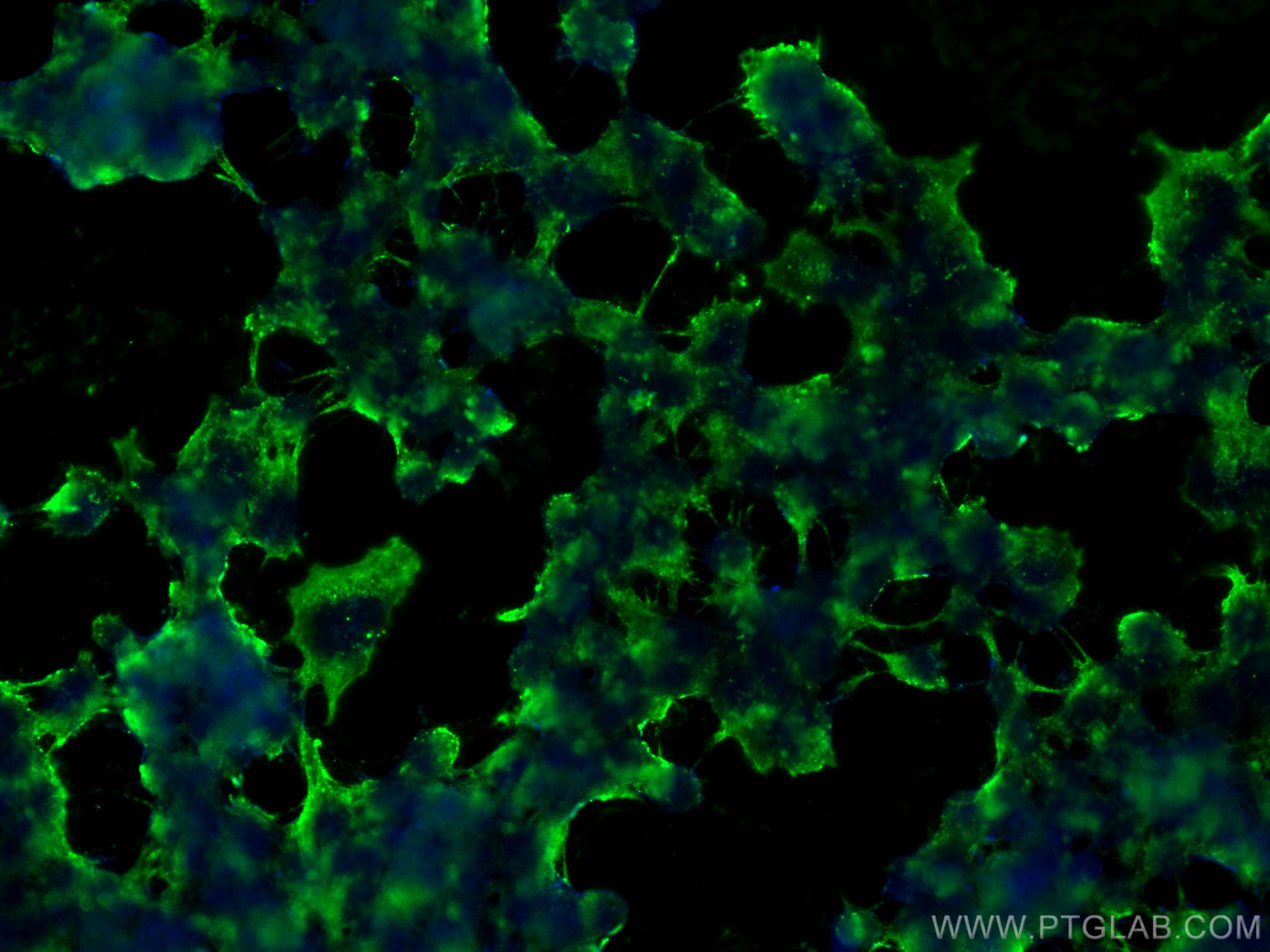Tested Applications
| Positive IF/ICC detected in | PC-12 cells |
Recommended dilution
| Application | Dilution |
|---|---|
| Immunofluorescence (IF)/ICC | IF/ICC : 1:50-1:500 |
| It is recommended that this reagent should be titrated in each testing system to obtain optimal results. | |
| Sample-dependent, Check data in validation data gallery. | |
Product Information
CL488-66539 targets RYR1 in IF/ICC applications and shows reactivity with human, rat samples.
| Tested Reactivity | human, rat |
| Host / Isotype | Mouse / IgG1 |
| Class | Monoclonal |
| Type | Antibody |
| Immunogen |
CatNo: Ag25120 Product name: Recombinant human RYR1 protein Source: e coli.-derived, PGEX-4T Tag: GST Domain: 4942-5038 aa of NM_000540 Sequence: GELRDQQEQVKEDMETKCFICGIGSDYFDTTPHGFETHTLEEHNLANYMFFLMYLINKDETEHTGQESYVWKMYQERCWDFFPAGDCFRKQYEDQLS Predict reactive species |
| Full Name | ryanodine receptor 1 (skeletal) |
| Calculated Molecular Weight | 565 kDa |
| GenBank Accession Number | NM_000540 |
| Gene Symbol | RYR1 |
| Gene ID (NCBI) | 6261 |
| RRID | AB_3084256 |
| Conjugate | CoraLite® Plus 488 Fluorescent Dye |
| Excitation/Emission Maxima Wavelengths | 493 nm / 522 nm |
| Form | Liquid |
| Purification Method | Protein G purification |
| UNIPROT ID | P21817 |
| Storage Buffer | PBS with 50% glycerol, 0.05% Proclin300, 0.5% BSA, pH 7.3. |
| Storage Conditions | Store at -20°C. Avoid exposure to light. Stable for one year after shipment. Aliquoting is unnecessary for -20oC storage. |
Background Information
Ryanodine receptor isoform-1 (RyR1) is a major calcium channel in skeletal muscle important for excitation-contraction coupling. The transmembrane region of RyR1 is comprised of two domains including the pseudo voltage sensor domain and the pore-forming domain (PMID: 27855725). Dominant RyR1 mutations are the leading cause of MH. Studies on the Ca2+ conducting properties of RyR1 channels containing Malignant hyperthermia mutations expressed in myotubes.
Protocols
| Product Specific Protocols | |
|---|---|
| FC protocol for CL Plus 488 RYR1 antibody CL488-66539 | Download protocol |
| IF protocol for CL Plus 488 RYR1 antibody CL488-66539 | Download protocol |
| Standard Protocols | |
|---|---|
| Click here to view our Standard Protocols |




